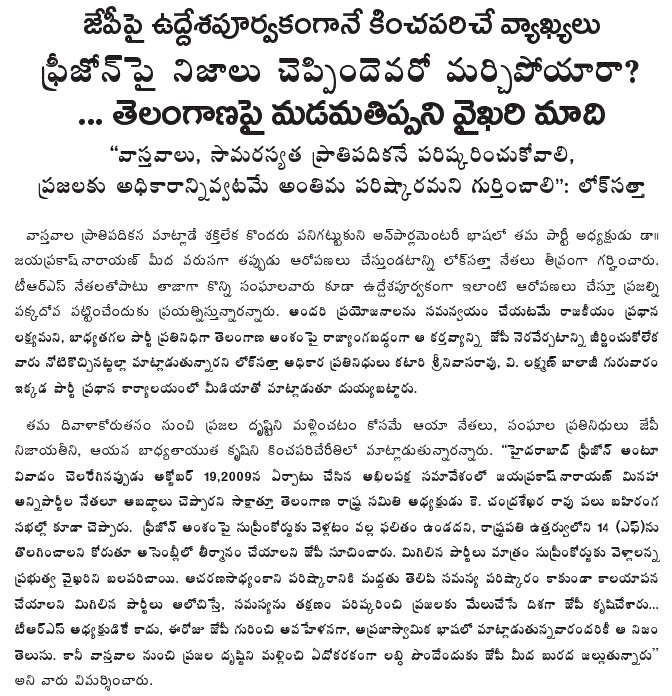Lok Satta welcomes proposal for Ombudsman for local bodies
The Lok Satta Party today welcomed the 13th Finance Commission conceding the Lok Satta proposal for the constitution of an Ombudsman to go into complaints of irregularities at the local government level, and allocating some funds directly to the third tier of government.
Talking to the media, party spokespersons Katari Srinivasa Rao, Bhisetty Babji and V.Vijayender Reddy said that as per the latest Finance Commission recommendations, Andhra Pradesh would get Rs.1,00,616 crore as its share in Central taxes and Rs.13,802 crore by way of grants in aid, in addition to funds under Centrally-sponsored schemes during the next five years. The devolution of funds from the Government of India per year would work out to nearly Rs.25000 crore a year.
The Lok Satta leaders underlined that the State Government, which received huge funds from the Government of India, should allocate a portion of its revenue to zilla parishads, municipalities, and other local bodies, which constitute the third tier of government. A per capita grant of Rs.1000 to every local body in the State would not cost more than Rs.8000 crore a year, constituting a mere 7 percent of the State’s 113,000-crore budget.
The 73rd and 74th amendments to the Constitution envisaged devolution of resources and responsibilities on local bodies. Instead of adhering to the letter and spirit of the amendments, successive State Governments in Andhra Pradesh have been preserving and promoting centralization of power, and emasculating local governments.
Against the backdrop of the State receiving munificent assistance from the Government of India, the State Government should not trot out any more excuses for denying local bodies a legitimate share in its revenue.
The Lok Satta spokespersons said the Finance Commission suggestion that the States introduce a separate budge for local bodies would be meaningful only if they part with funds to local bodies.




